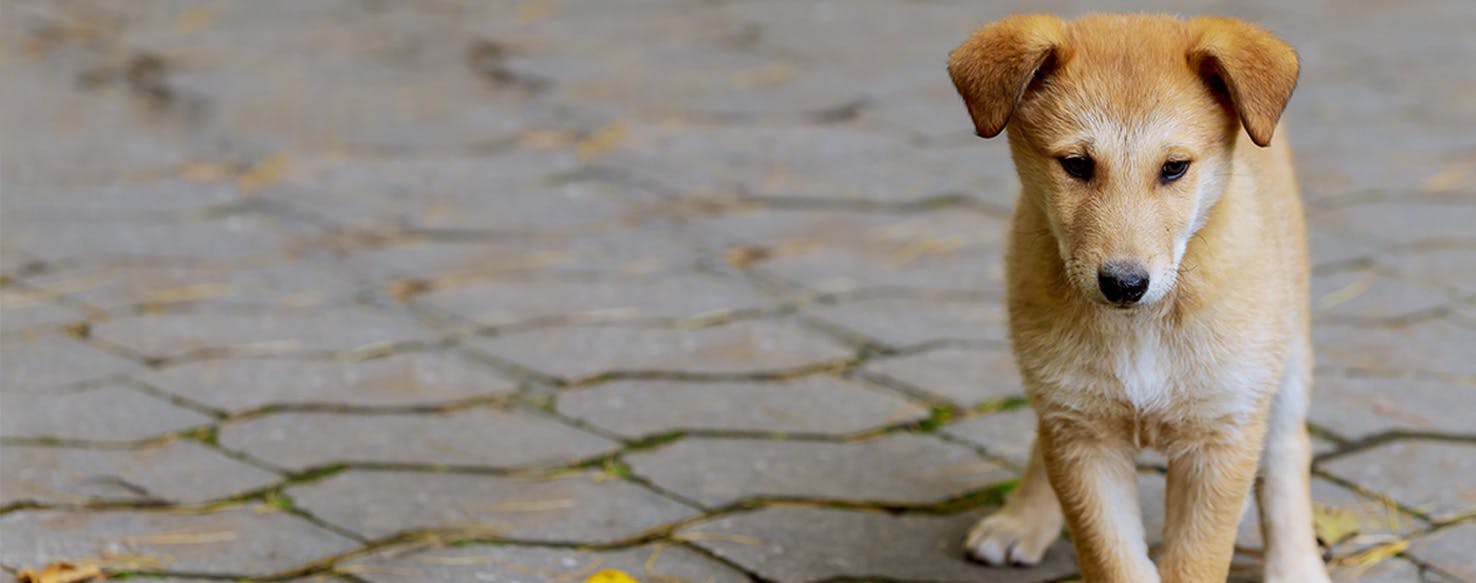- Home
- The Daily Wag!
- Senses
- Can Dogs Feel Insecure?

You know better than anyone that dogs definitely can have personality quirks, distinctions, and even act human sometimes. So, is it totally insane to think that dogs can be insecure? You've seen your dog act sheepish, brave, obnoxious, cowardly, goofy, and everything in between - why couldn't your pup be insecure?
To answer the question, although dogs feel and process emotion differently than people, it is possible that your dog can deal with insecure feelings. The difference? How those insecurities manifest themselves. Your pup will likely deal with stress and anxiety, as well as some tell-tale signs of submissive postures and panting. There are tons of causes for these insecurities, too.
Do you want to know more about what could be causing your dog's insecurities? Want to know how you can help your dog battle these issues? Read on to learn more!
Like we said, if you're a dog owner, it's likely you already know that your pup can be insecure - after all, you're well-acquainted with your pooch's quirks and personality traits. What you might be unfamiliar with are the signs your dog may be giving you to let you know they're feeling exceptionally insecure. Unlike people, these signs will manifest themselves in very doggo-specific behaviors.
For example, if your dog is insecure, they'll likely let you know through anxious or fearful behavior. If your dog is trembling, hiding, growling, or acting out of character, that's a good sign that he or she is probably feeling uncomfortable or insecure with the situation they're in. Some dogs might even snap or bite at you (or others) if they're feeling exceptionally insecure.
Other dogs will manifest these feelings of insecurity in other behaviors that are less aggressive. For example, some dogs will have accidents in the house, use submissive postures, yawn, pant, and refuse to come out of their kennels or cages.
Body Language
Here are a few body language signs you should look out for:
- Whining
- Scratching
- Yawning
- Raspy Panting
- Whimpering
Other Signs
<p>A few more cues that your dog feels insecure are:</p>
- Trembling
- Hiding
- Incontinence
- Submissive Postures
- Aggressive Behavior
Just like people, dogs can have tons of different reasons for their insecurities. Every dog has a different cause for their insecure behavior, but there are some causation trends among canine insecurities.
For example, dogs can be insecure simply due to their breed. Genetic disposition has a huge bearing on how a dog's personality will be, and some breeds, like corgis, Russian Terriers, Salukis, and Mastiffs, are more susceptible to insecure behaviors.
A lack of socialization early in life can lead to insecurities for pups, as well as anxieties when it comes to interacting with other dogs. Other things like lack of proper leadership, traumatic experiences, and inexperience can lead to doggo insecurity.
What exactly is insecurity, anyway? To better understand if your dog is suffering from insecurity, you'll need a solid grasp on what this means for your dog.
An insecure pup could manifest their issues in the forms of anxiety, aggression, passive behavior, or fear, but why does this happen? As we stated above, there are many causes of insecurity, ranging from age-related degeneration to lack of leadership to genetics. But what exactly does insecurity do to your dog's brain?
Insecurity can limit your dog's range of motions, thoughts, and even their emotions. When your dog is feeling insecure, they're much more susceptible to fight or flight mode, whereas, a comfortable, secure dog won't be. In other words, a normally social dog who interacts well with people can turn aggressive and anxious if they're faced with something they're insecure with.
Living with, and training, a doggo who suffers from severe insecurity can be tricky. Not only are you faced with a more difficult dog to be around, but also, your poor pup is probably facing all kinds of anxieties, stressors, and issues that other dogs might not face. So, how do you go about training your dog to jump out of his or her insecure skin and embrace life by the tail?
First, it's important to understand why your dog is insecure. Does your pup have a traumatic backstory? Was your dog never socialized as a puppy? These causes will help you determine your course of action.
Next, you need to establish yourself to the dog as the pack leader. Your dog needs to understand that not only are you in charge, but they're able to trust you completely. Start with basic obedience skills to establish this relationship with your dog.
Then, it's important to comfort your dog without coddling. If your dog is scared, it can be easy to want to fix the issue and coddle your pooch, but this won't help your dog get over his or her insecurity. Reward your dog when he or she acts confidently and resist the urge to reward insecure behavior. You'll always want to help your dog face his or her fears but do so in a gradual way.
If your dog is insecure and nervous around other dogs, you don't want to just throw your pooch in the middle of the dog park and hope for the best. Instead, introduce your dog to other pups gradually, slowly, and at a pace that's comfortable for your pooch.
Have questions or concerns about your pet?
Chat with a veterinary professional in the Wag! app 24/7.
Get Vet ChatWritten by a Great Dane lover Hanna Marcus
Veterinary reviewed by:
Published: 04/12/2018, edited: 04/06/2020
More articles by Hanna Marcus

